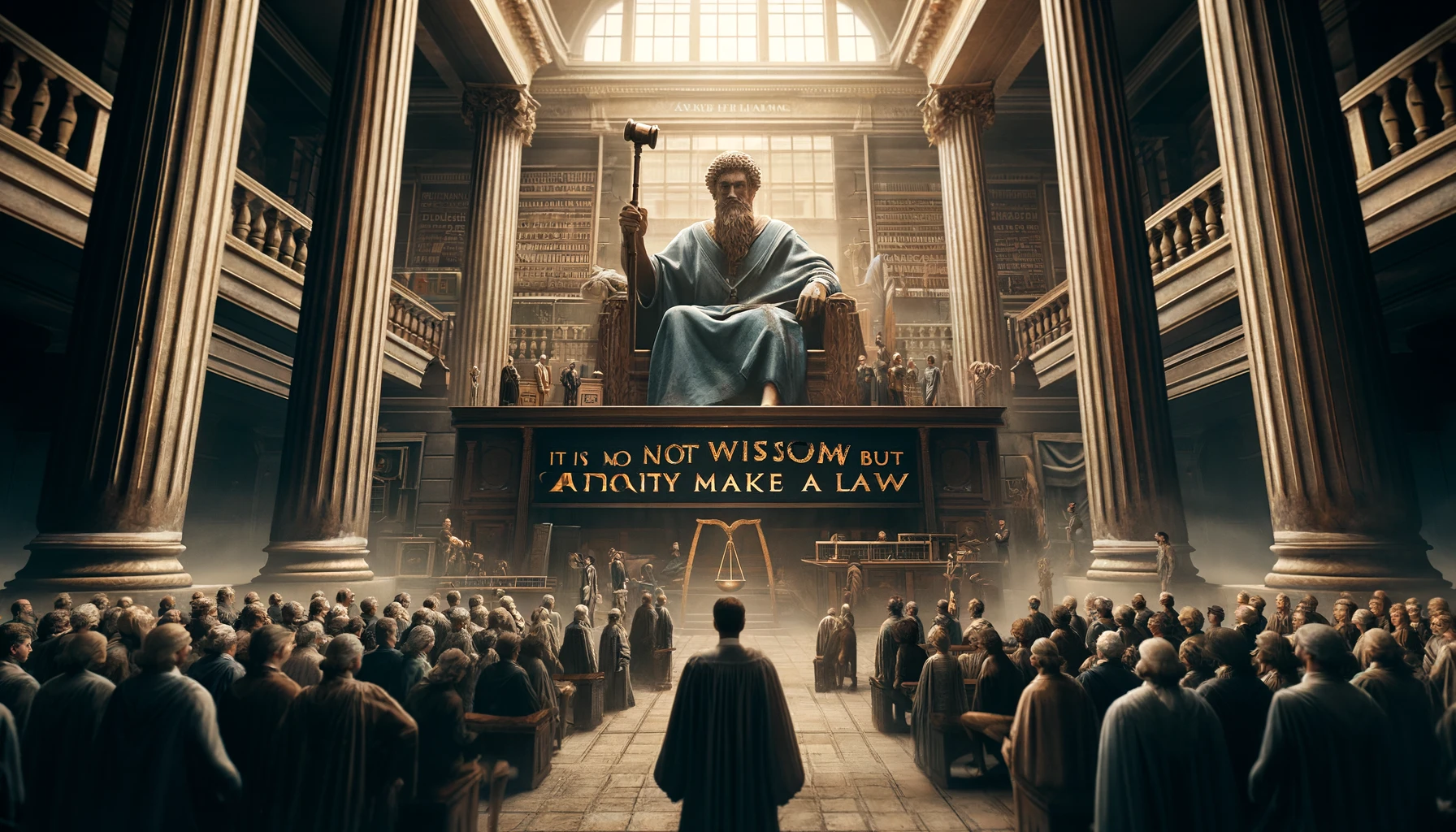“It is Not Wisdom but Authority that Makes a Law. T – Tymoff.” This idea makes us think differently about how laws are made and the role of governing bodies. It suggests that having the power to make laws comes from being in charge, not necessarily from being wise.
Understanding Authority in Legal Frameworks
In the world of making laws, authority means having the power and control to set rules, enforce them, and keep everything in order.
It is an essential part of legal systems that helps make sure laws are followed and keeps society stable.
Authority can come from history, the structure of institutions, or being chosen by the people, giving those in charge the ability to shape laws that reflect particular interests and ideas.

The Mechanisms of Law Enforcement
Law enforcement agents are clear examples of authority. They make sure laws are followed by using penalties for breaking them.
This is important for keeping order, but it can sometimes lead to oppression if it’s not balanced with moral compass and fairness.
In my community, the introduction of strict laws about how to behave during cultural festivals was seen as an overstep by those in charge. Many people were upset because they felt these laws did not fit well with our long-standing cultural traditions and were just based on the whims of a few influential people.

The Influence of Wisdom in Lawmaking: It is Not Wisdom but Authority that Makes a Law. T – Tymoff
While authority is necessary, wisdom—which is deep knowledge and understanding combined with a sense of fairness—is also very important. Wisdom helps ensure that laws not only keep order but do so fairly and rightly.
It involves considering what is normal and proper in society and what ethical considerations should influence good legislation.
Wisdom also matters a lot when changing laws. For example, recent changes to how young people who break the rules are treated in my area were influenced by both authority and wisdom.
These changes tried to balance the need for order with the need to treat young offenders in a way that helps them improve instead of just punishing them.

Debating Authority vs. Wisdom
Discussing authority and wisdom in making laws raises big questions about how laws are made and who benefits from them.
Authority helps ensure laws are obeyed and provides a structure for enforcement.
However, without wisdom, laws can become too controlling and oppressive, not matching the changing values and ethical standards of the people they are supposed to serve.
Thus, the legal dynamics are not just about enforcing laws but also making sure they are made in a way that respects the wisdom of society’s values and moral conscience.
This is crucial to prevent legal systems from becoming tools of authoritarian regimes instead of being fair and just.

The Challenge of Balancing Authority and Wisdom
The big challenge in legal systems is to find a balance where authority does not overpower wisdom and where laws are both enforceable and fair.
This needs ongoing discussion, changes, and sometimes reforms to make sure laws stay useful and reflect changes in society.
From looking at T. Tymoff’s statement, we see that while authority might enforce laws, wisdom should guide their creation.
Achieving this balance is key to creating a democracy that truly meets the needs and values of its people, ensuring authority serves the society it is meant to govern, not the other way around.”




